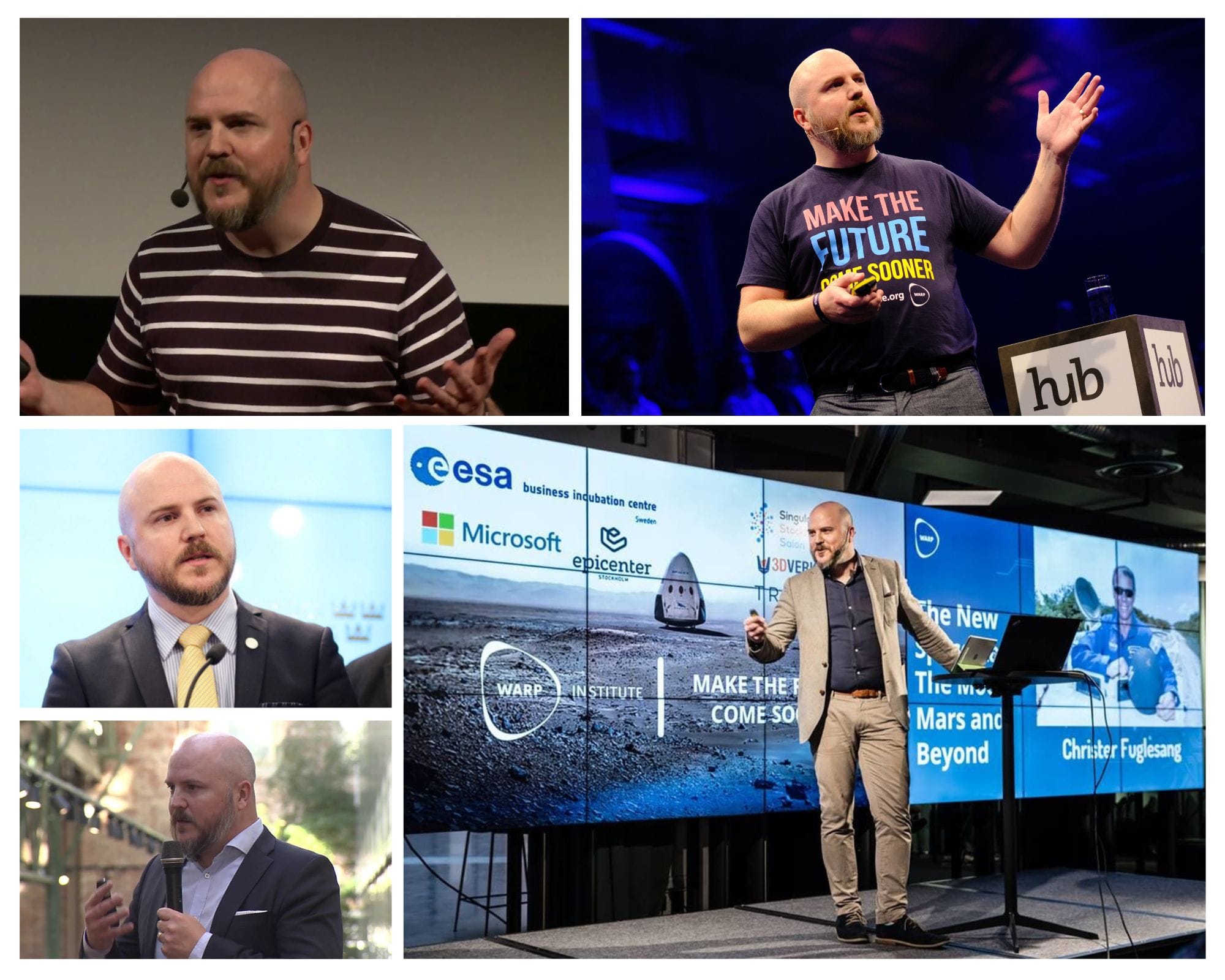
Mathias Sundin is The Angry Optimist
"A world-leading futurist, offering sound guidance to government leaders, corporate decision-makers, and individual citizens."
-- Tom Skalak, PhD, Senior Advisor to the Founders, Joe and Clara Tsai Foundation
Quick facts
- Editor-in-chief and CEO of Warp News - fact-based optimistic news.
- Founder and chairman of the Warp Institute.
- Member of the Swedish National AI Commission.
- Founder of four startups. (The latest is building AI tools for schools.)
- Author of two books (one is a political thriller, the other about AI)
- Former Member of Parliament and Deputy Mayor.
- I live in an apartment in Stockholm, Sweden, and an 18th-century cottage in Småland.
- Husband to Emma, and father to Teddy.
Here you'll find contact info & photos.
"Mathias Sundin is like a contemporary Hans Rosling."
– Klas Hallberg, ranked as one of the world's top 9 professional speakers
The Angry Optimist
It was during my time as a Member of Parliament that I became an angry optimist.
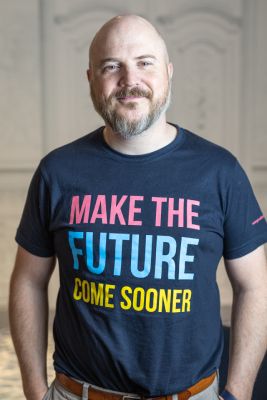
Optimist because I met world-leading researchers and entrepreneurs and saw the bright future they were creating. Angry at how they were dismissed by pessimists and their ideas were drowned in a negative news feed, causing us to miss important opportunities.
They also had one thing in common: They were all optimists - and not naive.
I got a key insight, that dramatically changed my life: The future is created by optimists.
My driving force has always been to try to make the world a better place. Now I realized that the best way to have an impact, was to gather the world's optimists in a community.
That's why I left the Parliament and started the Warp Institute foundation, with the goal of leveling up humanity, together with the world's optimists.
About me
Originally I’m from the heart of the whine belt, Närke, Sweden. Not the wine belt, the whine belt. Where complaining is central to life. So optimism didn’t come naturally to me…
I live in Stockholm, but what I call home is our cottage in southern Småland. From the 18th century, with grass on the roof, long-horned highland cattle as the closest neighbors, and a lake where I swim in the summers.
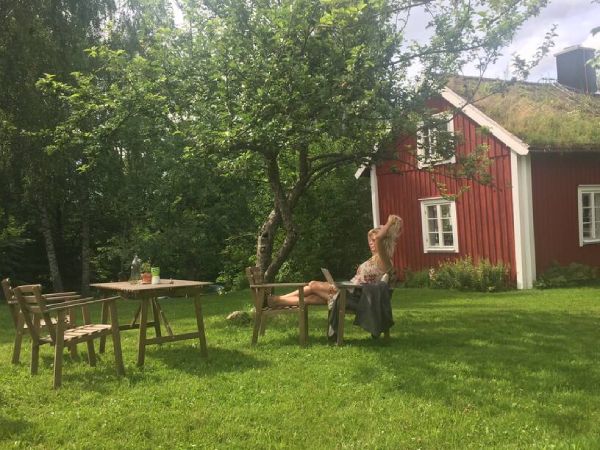
My biggest interest is reading books. I love to delve into someone's specialized knowledge or be transported into an author's world. In recent years, the number has increased, and now I read over a hundred books a year.

I share the cottage and life with the joyful, gorgeous Emma. We actually met on Twitter... Together we have Teddy. He was born on May 4th, on Star Wars Day. So every birthday, I get to say: I am your father!
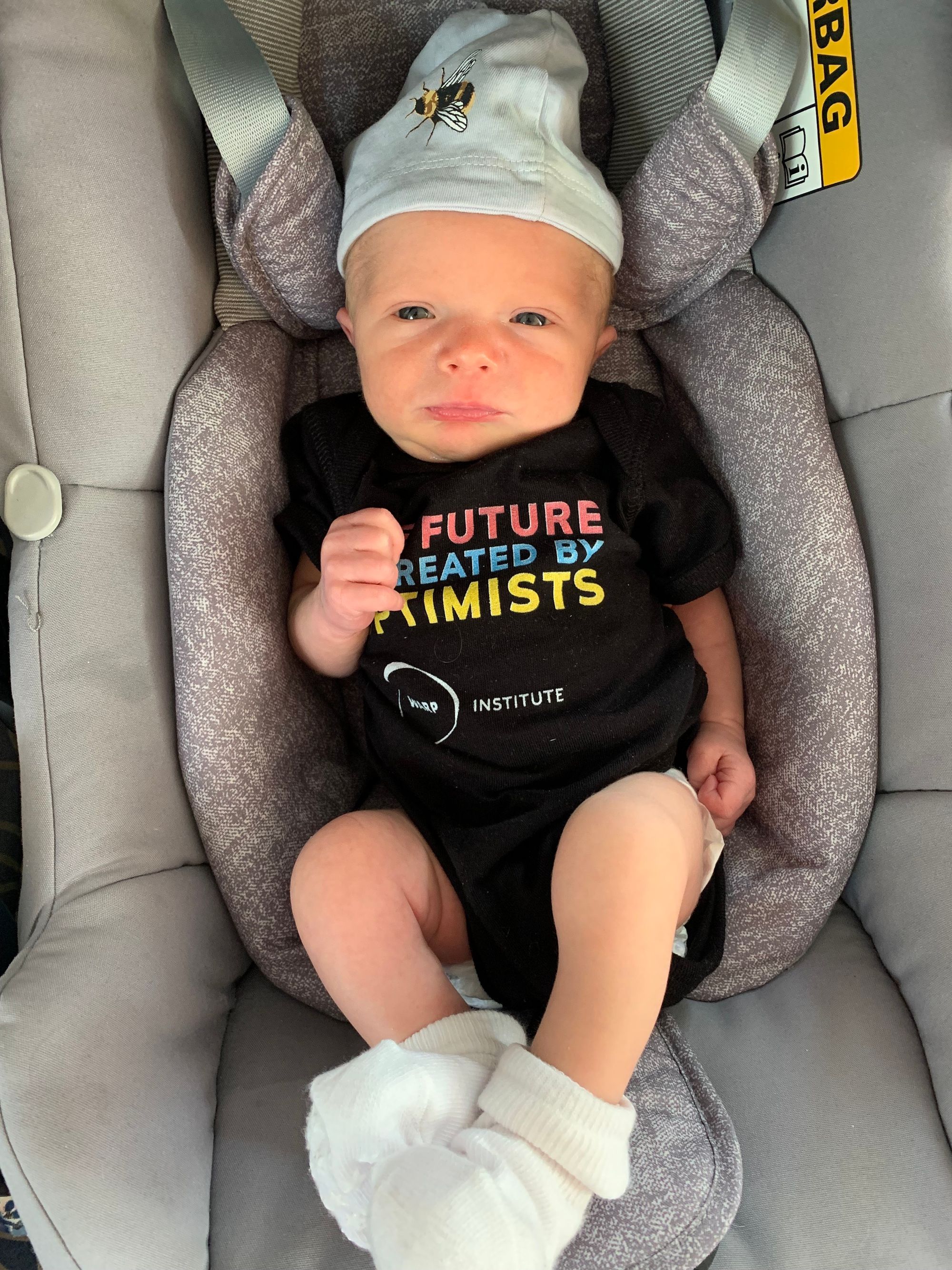
Teddy is named after my grandfather, whose actual name was Tadeusz. A Polish name that no Swede could pronounce correctly, so instead he was called Teddy.
He came to Sweden during World War II, when he fled from Norway, where he was a prisoner of war, in a German work camp. A dramatic life story, which I have written about here.
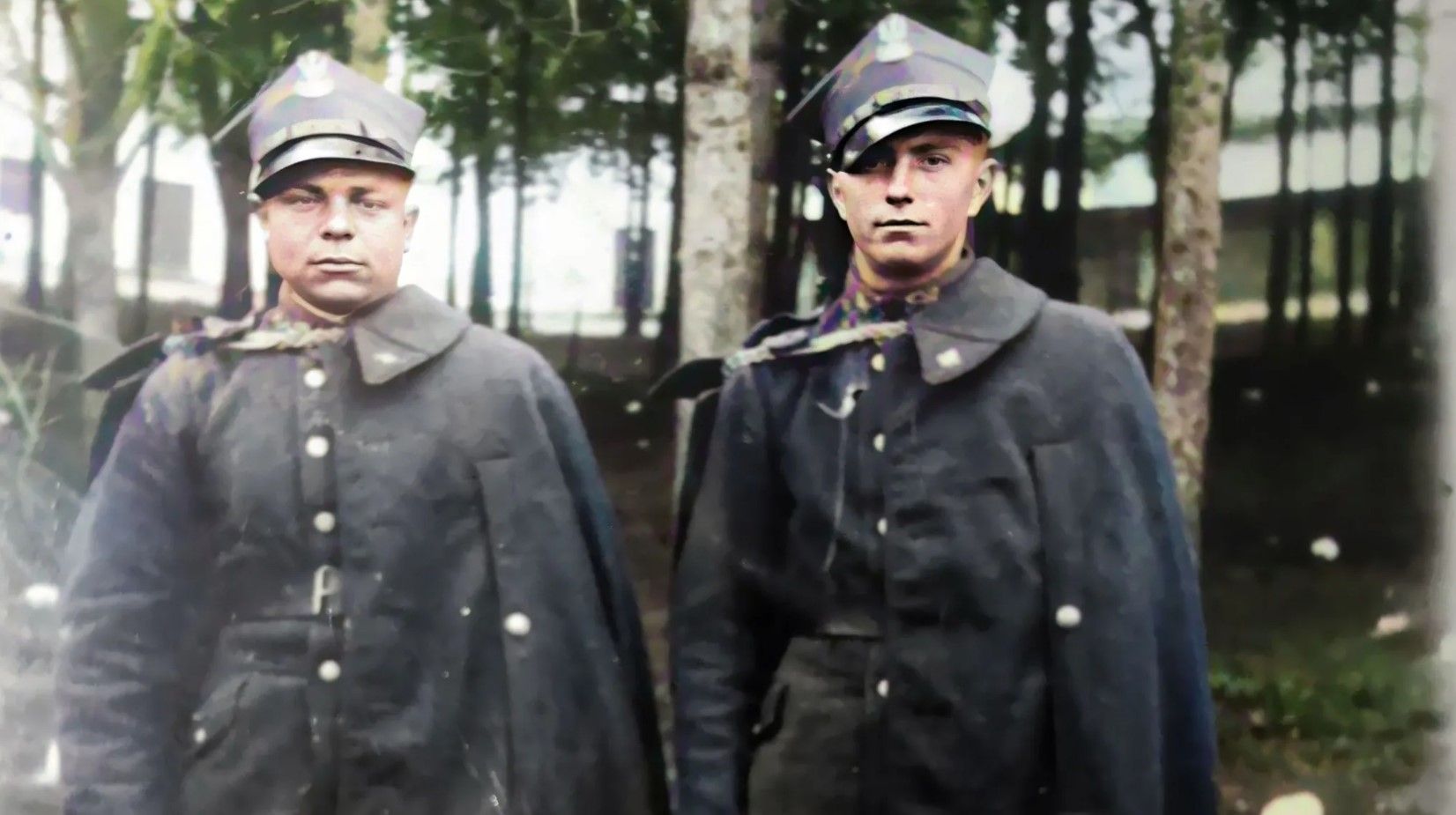
Fun(?) facts
Swedish door-to-door canvassing record
I hold the unofficial Swedish record in door-to-door canvassing, knocking on 10,001 doors during the 2010 election campaign.
To launch the campaign me and my buddy Jonathan Liberman made this video. It's in Swedish, but you will have no trouble understanding it anyway...
The world's first bitcoin candidate

In my campaign for Parliament in 2014, I wanted to talk about this new thing called bitcoin and blockchain. But no one else did. So I decided to only accept campaign donations in bitcoin. Suddenly news media from all over the world wanted to talk to me.
Sweden's largest blog about American politics
I visited my first American election in 2004. I immediately fell in love with both American politics and America. Since then, I've visited every mid-term and presidential campaign.
For several years I ran Sweden's largest blog on American politics, and became a regular talking head in Swedish news media, commenting on American elections.
American elections are awesome, especially if you go to an early primary state like New Hampshire. There you get to meet and talk to all the candidates. I've met Barack Obama, John McCain, Mitt Romney, Hillary Clinton, Bill Clinton, Joe Biden, Donald Trump and several other presidential candidates.
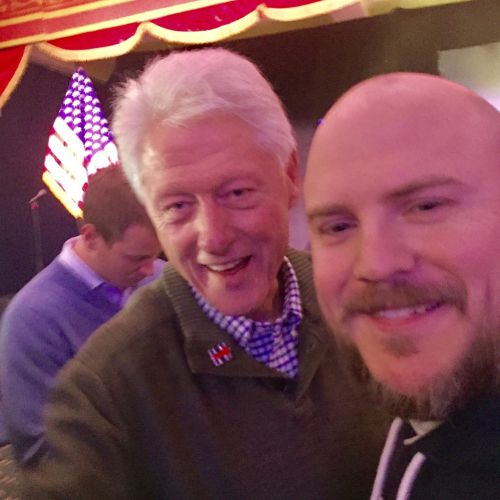
In 2008 I started ABBA fans for McCain and volunteered in McCain’s campaign during a summer month. I was awarded Best Campaigner and got to meet him before a campaign event in Reno, Nevada.
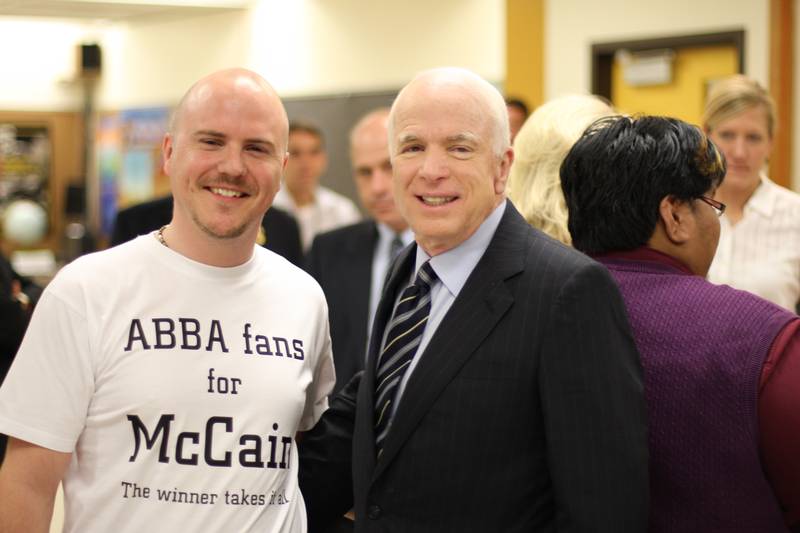
Later in life when I was a Member of Parliament, I met him again when he headed a delegation that visited the Swedish Parliament. I showed him this picture.
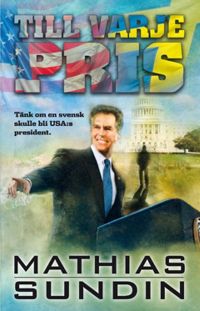
My interest in American politics (and books) also turned into a political thriller about a Swedish-American Senator from Minnesota, running for President.
I quit writing about American politics in 2016. Donald Trump took the fun out of it. But I had very much fun while it lasted, and during all the trips I fell in love with the country and its citizens.
Dance!
I have “danced” in the Swedish Parliament’s chamber, protesting an old law that demanded that restaurants and nightclubs needed a special permit to allow people to dance. A newspaper found this so funny they did a music video of it.
Member of Parliament
"Half would think I was an idiot, and the other half would think I had chickened out..."
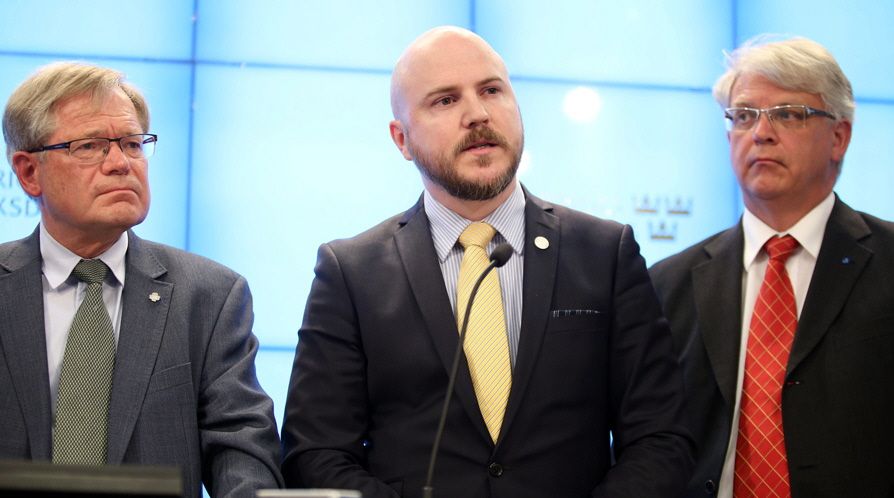
I made my debut in the parliament in 2012. When the Member of Parliament from my county was on parental leave, I stepped in for her for eight months.
My term started in May and it immediately turned dramatic.
In the previous election campaign, I had promised the voters to vote no to the data retention directive. It had already been voted through before when I entered parliament, but the implementation of it was the first decision on the parliament's table when I made my entrance.
In Sweden it is unusual for parliament members to vote against the party line and after I announced how I would vote, an intense campaign began for me to vote "correctly". But I had no such plans.
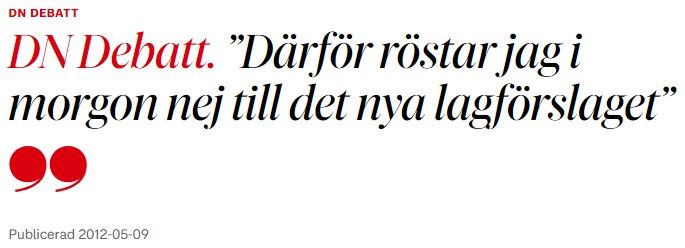
The problem was that I didn't even know how to vote. It may sound simple, but it's a long formal process with many steps, where you have to do the right thing at the exact right moment. We are talking seconds. I was all by myself and had never voted before.
If I made an error and didn't vote no, half would think I was an idiot, and the other half would think I had chickened out.
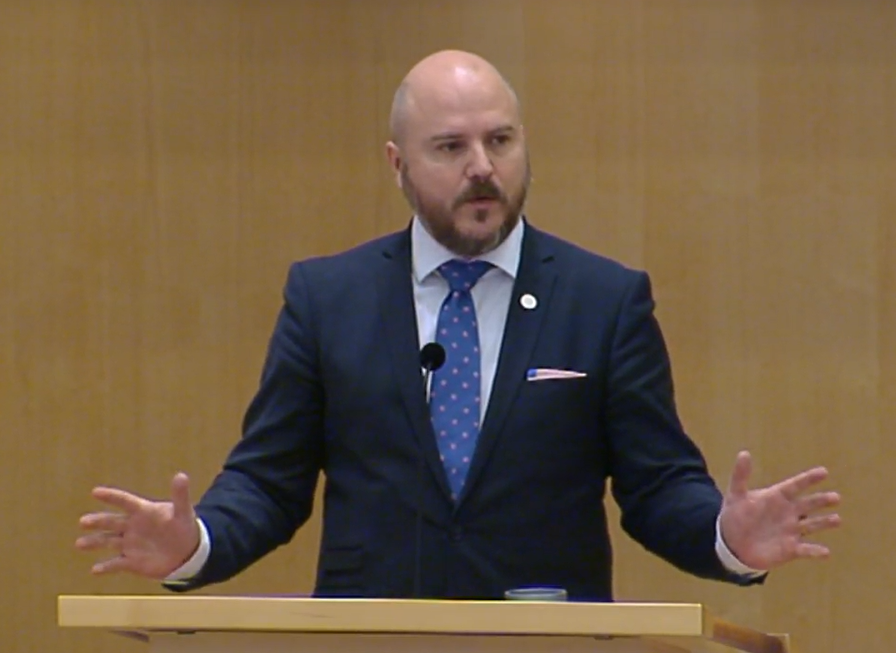
Rarely have I been so nervous. But somehow I managed to vote no.
When we left the chamber a MP from another party came up to me, holding a rubber band.
"That is not the way we do things around here. Next time I'll shot you with this" he said and stretched the rubber band.
After the vote, the two-meter-tall Johan Pehrson loomed over me. He was the group leader (whip) for my party then. Now, I'm going to get a real telling-off, I thought. He had tried to get me to vote "right" earlier. But he just wanted to check that I was OK, after such a dramatic debut. Since then, I've always liked him.
The Committee on the Constitution
I returned to parliament in 2014, when I was first on my party's list, but also managed to get enough personal votes to be individually elected.
My first two years, I sat on the Committee on the Constitution, where Andreas Norlén was chairman. Together, we all in the Committee succeeded in creating unity in the important scrutiny of the government. This was the first time in the Committee's 200+ years long history. And it has set a new precedent that still holds today.
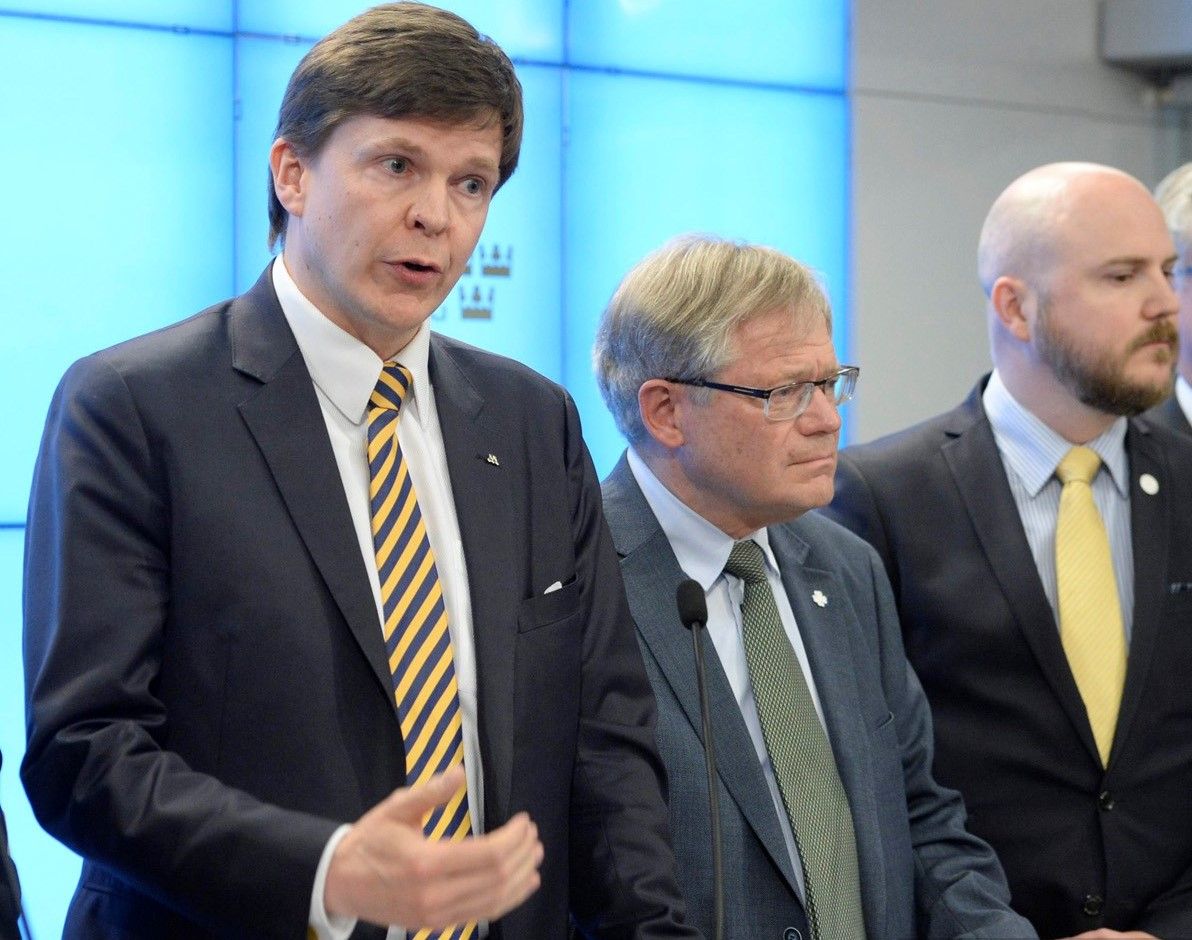
I was also on the Foreign Affairs Committee. There, I pursued, among other things, the formation of a Federation of Democracies. However, without any success. I couldn't even convince my own party.
Therefore, I was very pleased when former Danish Prime Minister and Secretary General of NATO, Anders Fogh Rasmussen, started the Alliance of Democracies. That foundation represents an embryo of what could become an alliance for the world's democracies. I am now a little active there myself, as a mentor to their tech fellows.
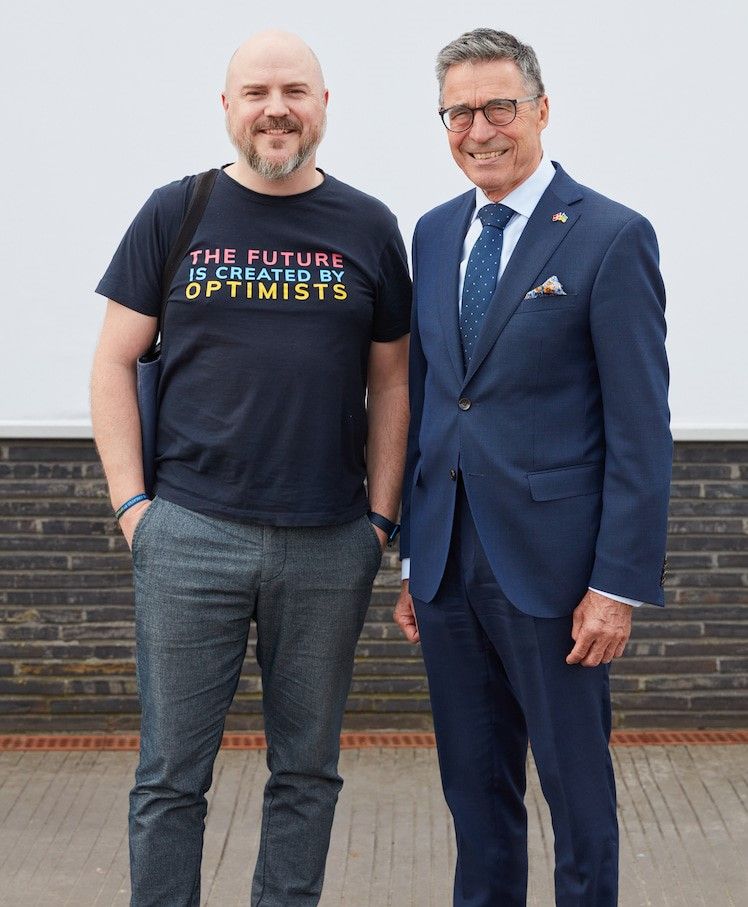
After two years, I moved to the Committee on Taxation, with a substitute position in the Finance Committee. When the regular member, Mats Persson, was on parental leave, I took over his position and the role of economic-policy spokesperson. Together with Ulf Kristersson, myself, and the others in the center-right coalition, almost caused a government crisis before the government backed down from some tax hikes.
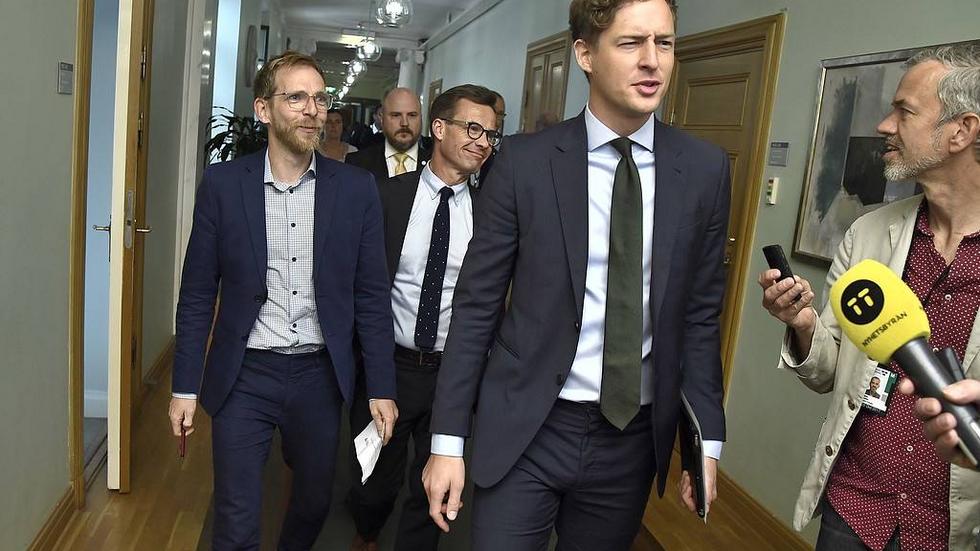
The Swedish unicorn
Since I myself had run a startup, in addition to local politics, I had become aware of the Swedish startup wonder and much of what was going on in the tech world. Stockholm was delivering billion-dollar companies one after another and I wanted to understand why.
During my first year in parliament, I met with over 50 startups, venture capitalists, and innovators. While learning about them, I became more and more aware of the enormous opportunities that lay ahead of us. Technological progress created the conditions for important breakthroughs.
The sky is not the limit
One area that I discovered was neglected in Swedish politics was space policy. I traveled to the Esrange rocket base in northern Sweden, to Mexico where I saw Elon Musk present Starship, to Los Angeles to visit SpaceX, to French Guiana where I witnessed a launch of an Ariane rocket, to London and an event with Virgin Galactic - and much more.
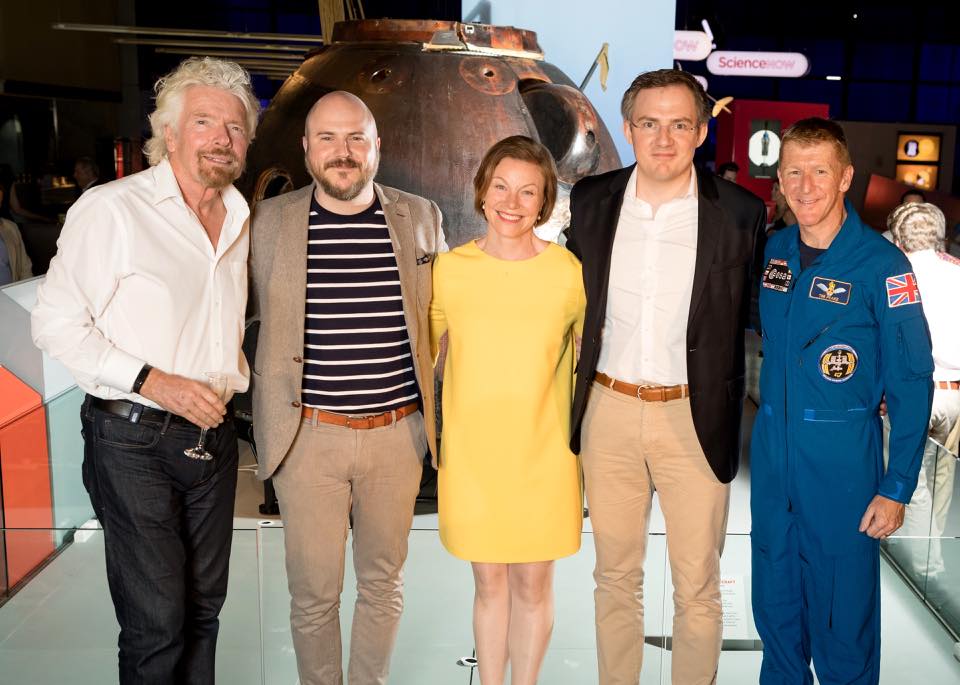
Together with the first Swede in space, Christer Fuglesang, I then presented a proposal for Swedish space policy.
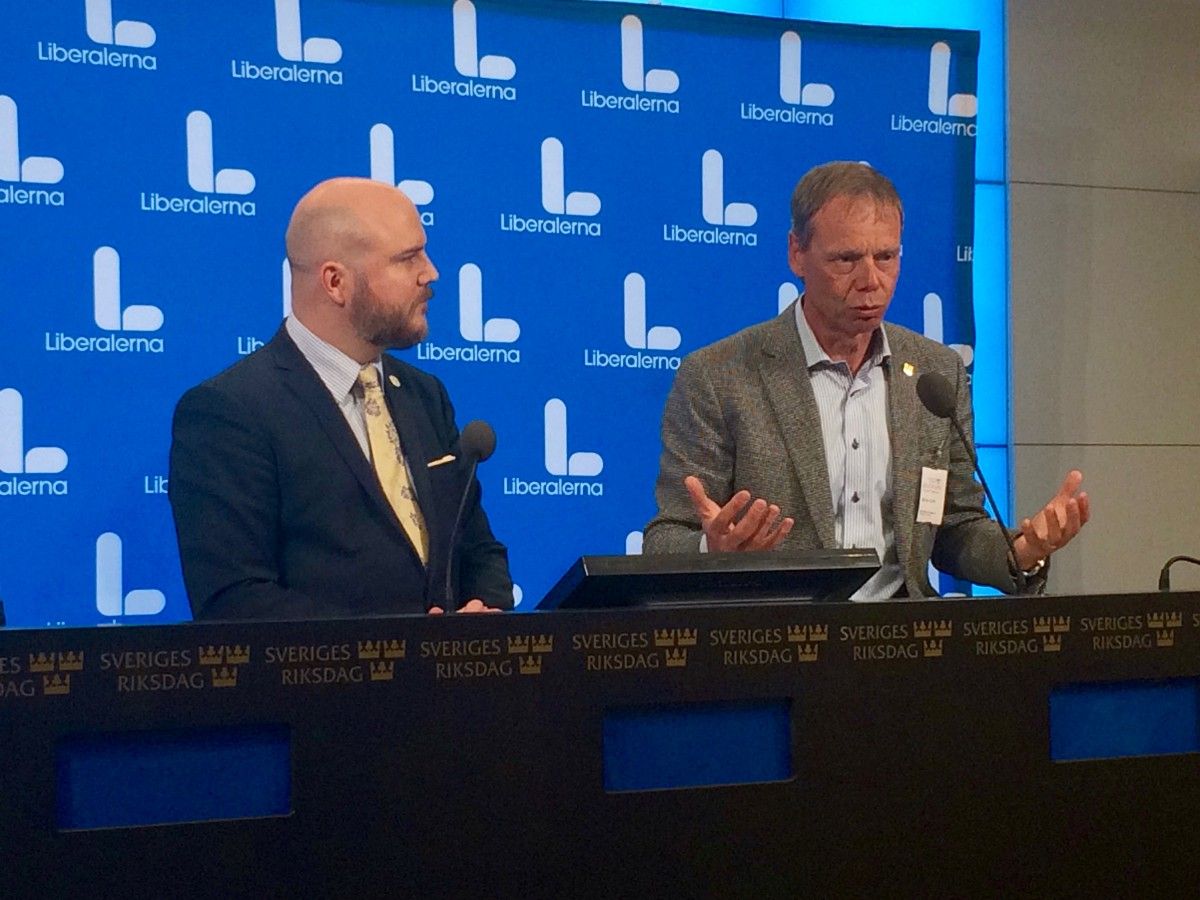
A self-driving Volvo?
Another area I early on became aware of was self-driving vehicles.
Did you know that over a million people per year die in traffic? With self-driving vehicles, it could be reduced to almost zero. But there were no politicians working on this. So, I organized a large seminar together with Volvo Cars. The idea was to drive up to the parliament in a self-driving car, but Volvo chickened out at the last minute. It still turned out great, with CEO Håkan Samuelsson, the Minister of Infrastructure, and global media present.
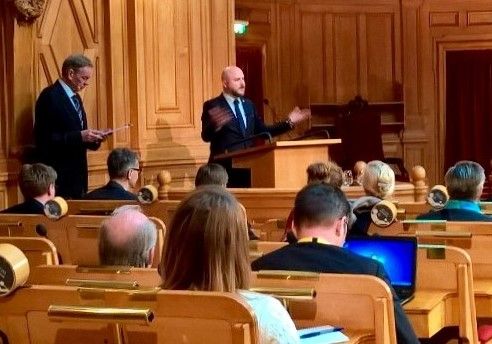
Getting angrier
It was these sorts of issues that ignited the spark of my anger.
The opportunity with self-driving cars made me feel a strong optimism, but when I read about it in the news media and talked to people, it was mostly horror scenarios that were painted. Thousands of self-driving cars being hijacked and killing people. That kind of thing.
This pessimism overshadowed the possibilities.
Bitcoin and bitterness...
The same thing happened a few years earlier with Bitcoin. That time, I made a very costly mistake.
Around 2012, I discovered Bitcoin, but only via headlines.
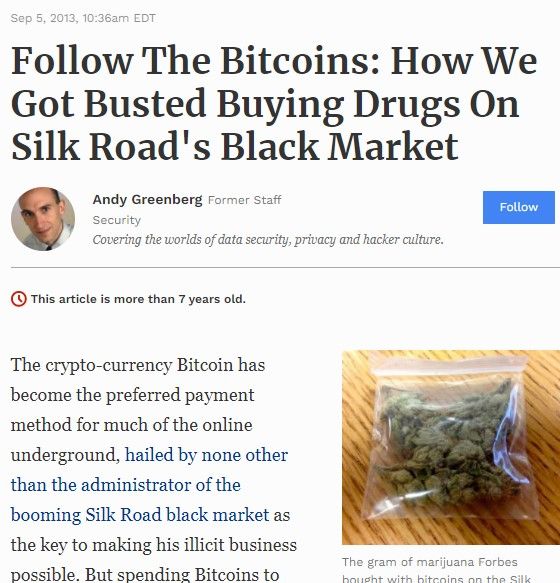
Negative headlines.
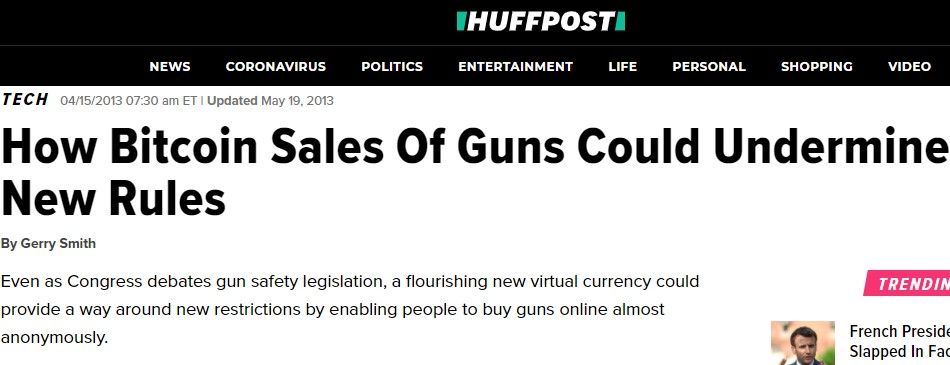
Very negative headlines.
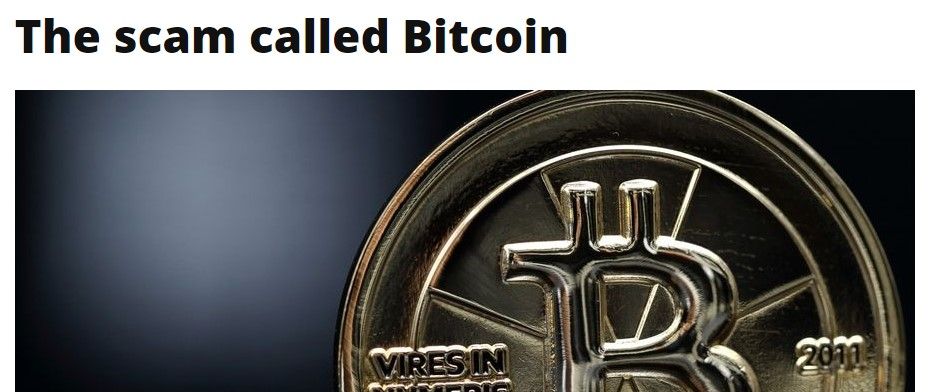
I didn't buy drygs, weapons or wanted to be scammed. So I ignored Bitcoin.
Then, a Bitcoin cost one dollar. If I had bought 100 Bitcoin at that time, they would have been worth seven million dollars at the peak.
But I didn't.
Because I let myself be fooled by the negative headlines.
But I'm not bitter…
In 2014, I was lucky. Then I stumbled upon an article by Marc Andreessen. I remembered him from the '90s when he started Netscape. Now he argued that Bitcoin could be as big as the personal computer, or the web. If he believed it, I should at least understand what it is.
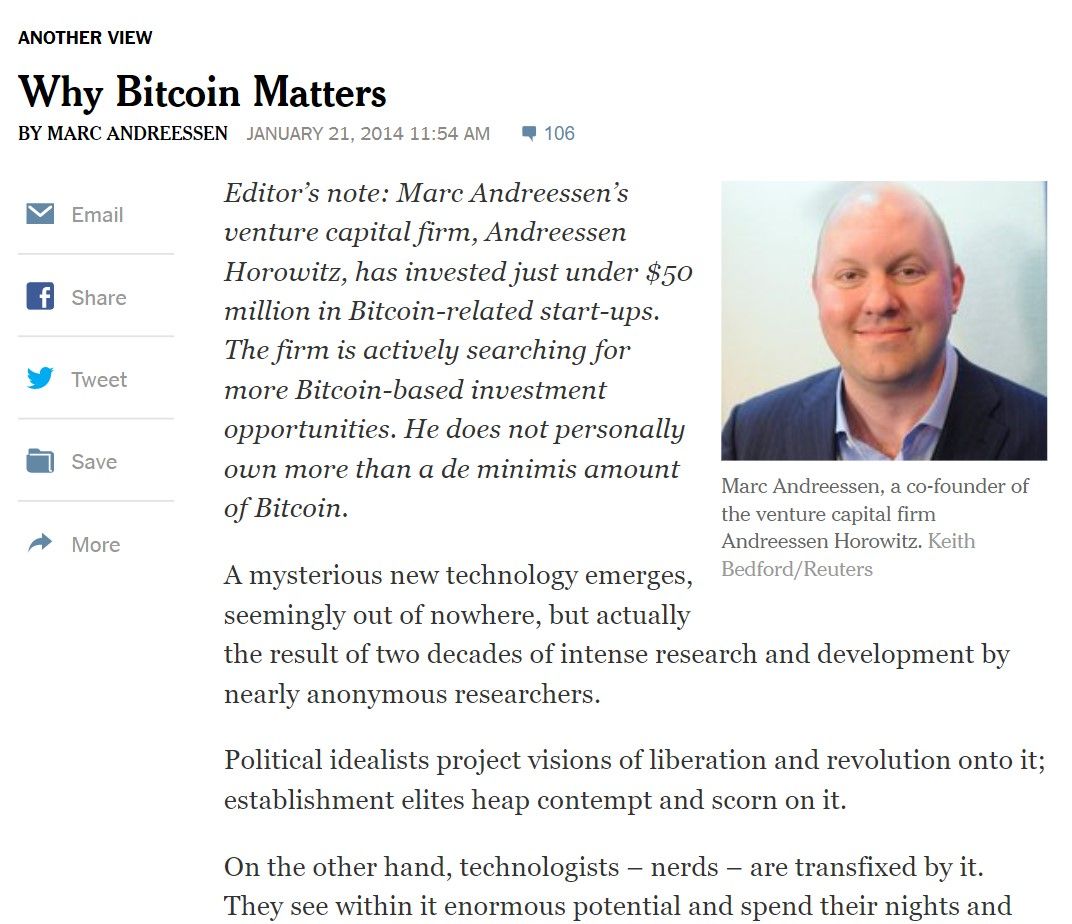
When I read up on it, I realized this was much more than what had been captured in the negative headlines. This could be a potential revolution, shifting power from huge financial institutions to the people.
Therefore, I wanted to talk about Bitcoin in the 2014 election campaign. No one else wanted to.
Then I came up with the idea of only accepting campaign donations in Bitcoin and suddenly I got to talk about it both in international media and with the voters in my home county of Östergötland.
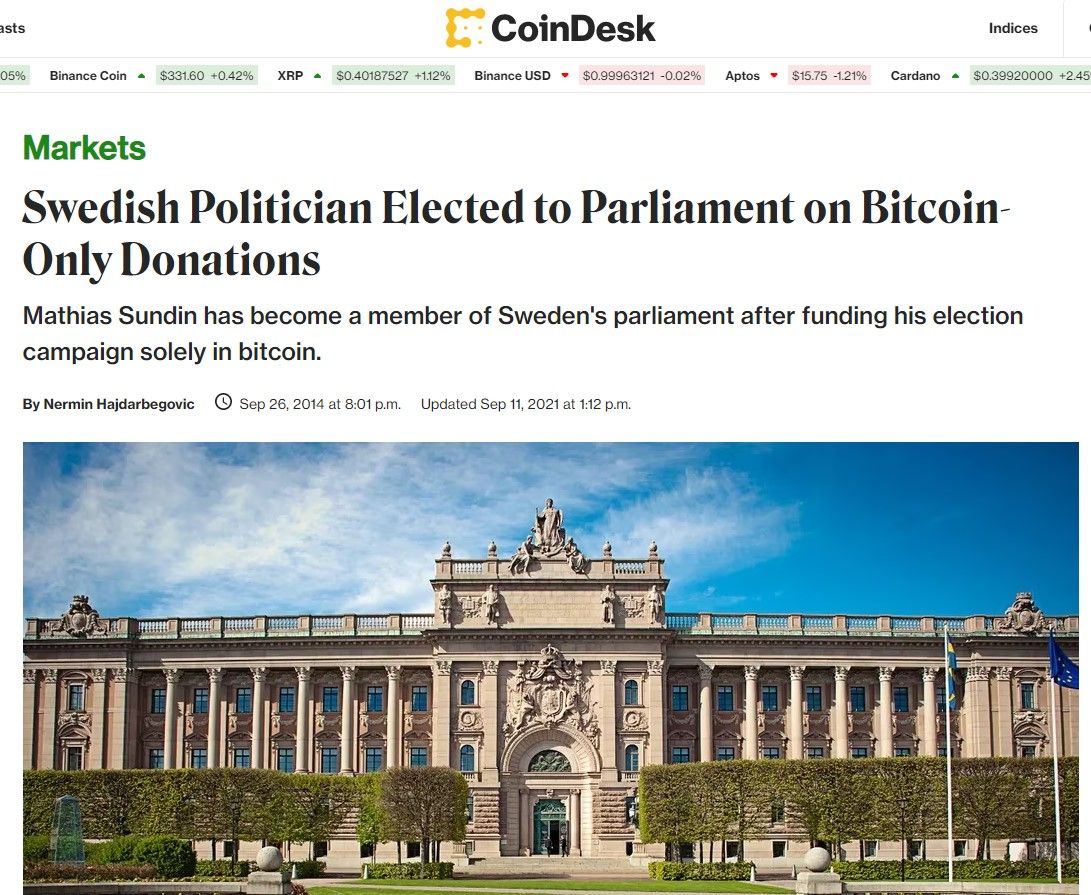
What opportunity am I missing right now?
After that, I asked myself a question, and have asked many times since then:
What am I missing right now because I unconsciously believe in the negative image that is being spread about a new technology or innovation?
Becoming an angry optimist
Optimism, anger, and a critical insight led me to reflect on my future.
Ever since my school years, I've been driven by the desire to have a positive impact on the world. That's why I studied to become a teacher, to help give my students a good start in life.
When I accidentally stumbled into politics, I realized there was an opportunity to positively affect more people, albeit not as directly as a teacher. The same was true with the move from local to national politics. I was further away from the citizens, but I could contribute to improving society for more people.
As the economic policy spokesperson, I held the third-highest position in the party, and who knew what could be in my political future. Despite this, I had decided to quit politics. Not because I was unhappy, but because I had discovered something even more important and meaningful to me.
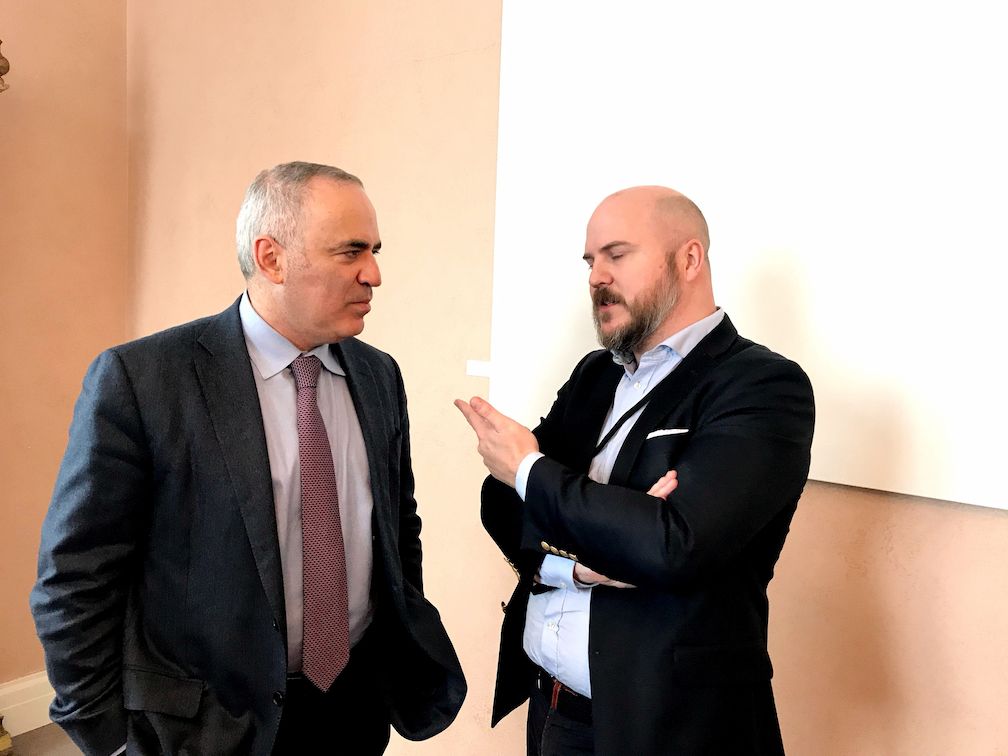
My optimism was bursting with all the entrepreneurs, researchers, and innovators I had met. But the focus on problems and the general pessimism that met them and their innovations made me seethe with anger. It caused humanity to miss out on important advancements.
At the same time, I had gained an insight that meant I could contribute to changing this.
All the entrepreneurs and innovators I had met had one thing in common: They were optimists. Not naive with an unrealistic belief that "everything will work out." They were visualizing how something could be better. How a problem could be solved, or an opportunity created.
Often, they realized things that most people missed. Many times, people have an incorrect view of the world. They think things are getting worse when they're getting better, more expensive when they're getting cheaper, more difficult when they're getting easier.
If you understand facts that most people have misunderstood, you have an advantage. It was this edge these fact-based optimists had. In the gap between understanding and misunderstanding, enormous opportunities were hidden.
When Birgitta Ohlsson and I met one of the Spotify founders, Martin Lorentzon, he told us how he and Daniel Ek believed that legal music streaming was possible, when almost everyone else thought it was impossible.
Over the past few years, I had seen dozens of optimists who, in the same way, found opportunities. It was these people who, more than anyone else, created the future.
I realized that the future is created by optimists.
If you gather the world's optimists into a community, they will be able to have a significant and positive impact on the world's future.
That is what I decided to do.
Mathias Sundin
Angry Optimist
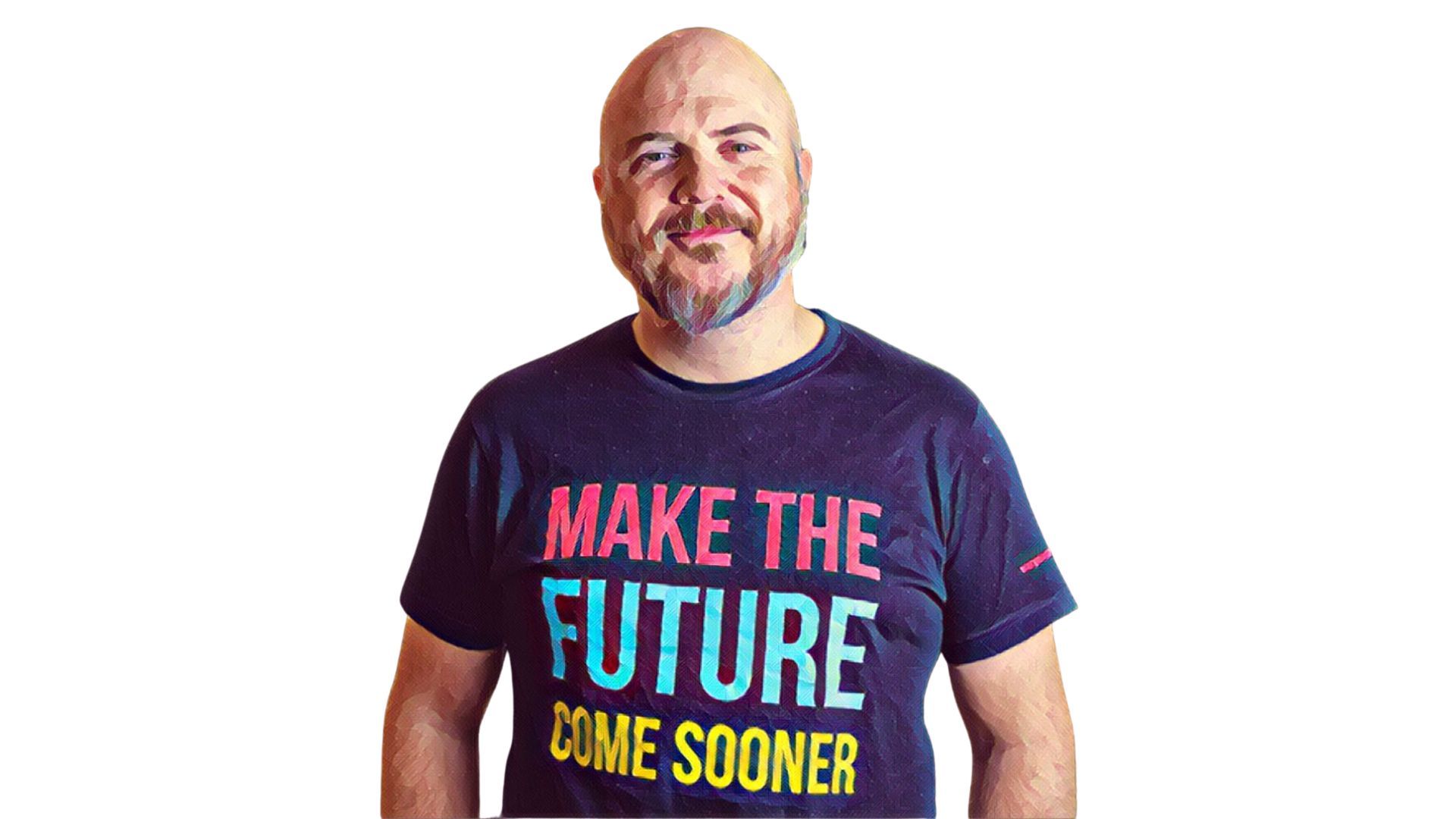
Said about Mathias
"Mathias is a pragmatic realist forged in the fire of parliamentary politics, who deeply understands that new knowledge and technical innovation is advancing civilization rapidly.
His fact-based optimism is a beacon of light illuminating the imagined future society we all hope to inhabit.
A world-leading futurist, offering sound guidance to government leaders, corporate decision-makers, and individual citizens."
– Tom Skalak, PhD
Senior Advisor to the Founders, Joe and Clara Tsai Foundation
Vice President for Research Emeritus, University of Virginia
Founding Executive Director of The Paul G. Allen Frontiers Group
"Mathias Sundin has taken up the baton after Hans Rosling by persistently reminding us about fact-based optimistic news."
– Klas Hallberg
Professional speaker
Winner of the Swedish Grand Speaker Prize
"Mathias brings both optimism and pragmatism to finding and helping to shape a more positive, optimistic future. As a friend, colleague and inspiration, I look to Mathias and, through his leadership, Warp News to help guide me to see the possible in every day. "
– Richard Maltsbarger
CEO of PetValu
Former COO and President International, Lowe's
